A Thrilling Week on Rotoroa Island: Mustering Kiwi with Quick Feet and Wit
In early May, led by Save the Kiwi, our mission was to locate ‘at-weight’ juvenile kiwi and relocate them to safe new habitats where they can thrive.
The term 'at-weight' refers to the 'stoat-proof' weight threshold of at least 1.2 kg, ensuring that the kiwi are big and strong enough to defend themselves against stoats—the number one predator of young kiwi.
This initiative is a cornerstone of Save the Kiwi’s "To the motu and back" kōhanga kaupapa, a strategy aimed at bolstering the population of Coromandel brown kiwi on the mainland.
Employing an impressive array of tools, two dog teams—James with Charlie, and Ko with Nargi—meticulously combed the island.
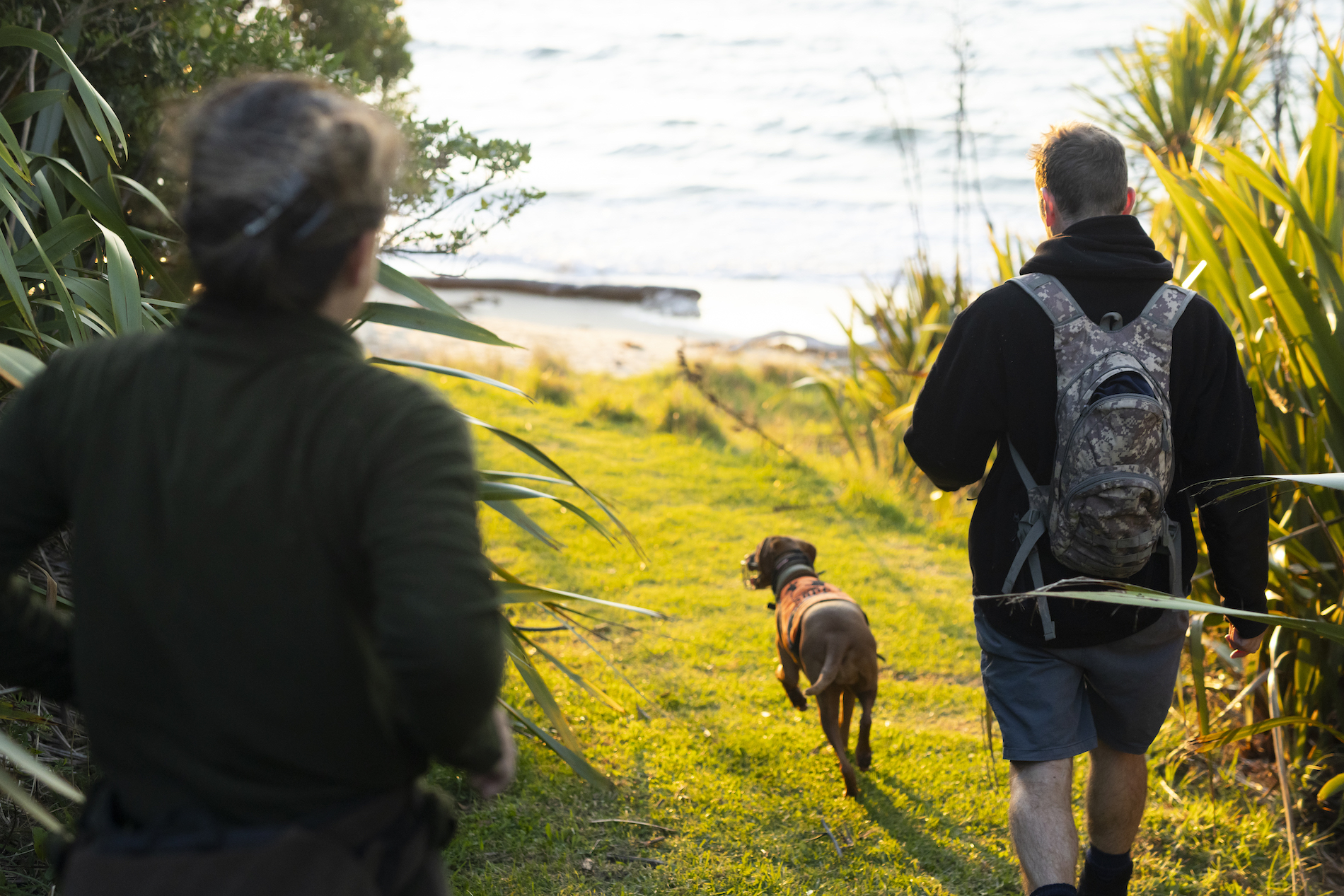
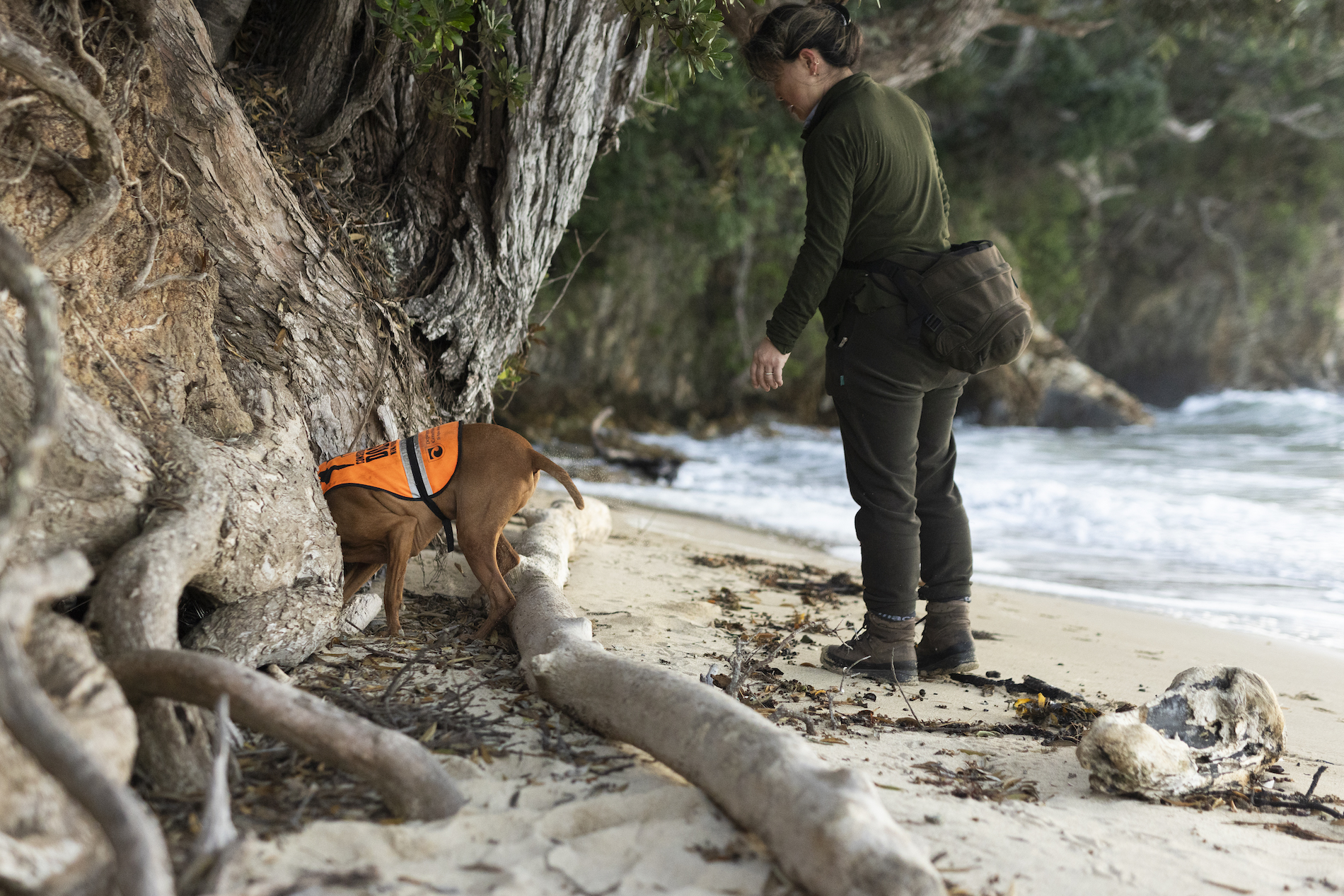
They were supported by the tech team comprised of Will, Aaron, and Al, our island relief ranger, who utilised night vision scopes to spot kiwi nestled deep within our dense bush and forests
.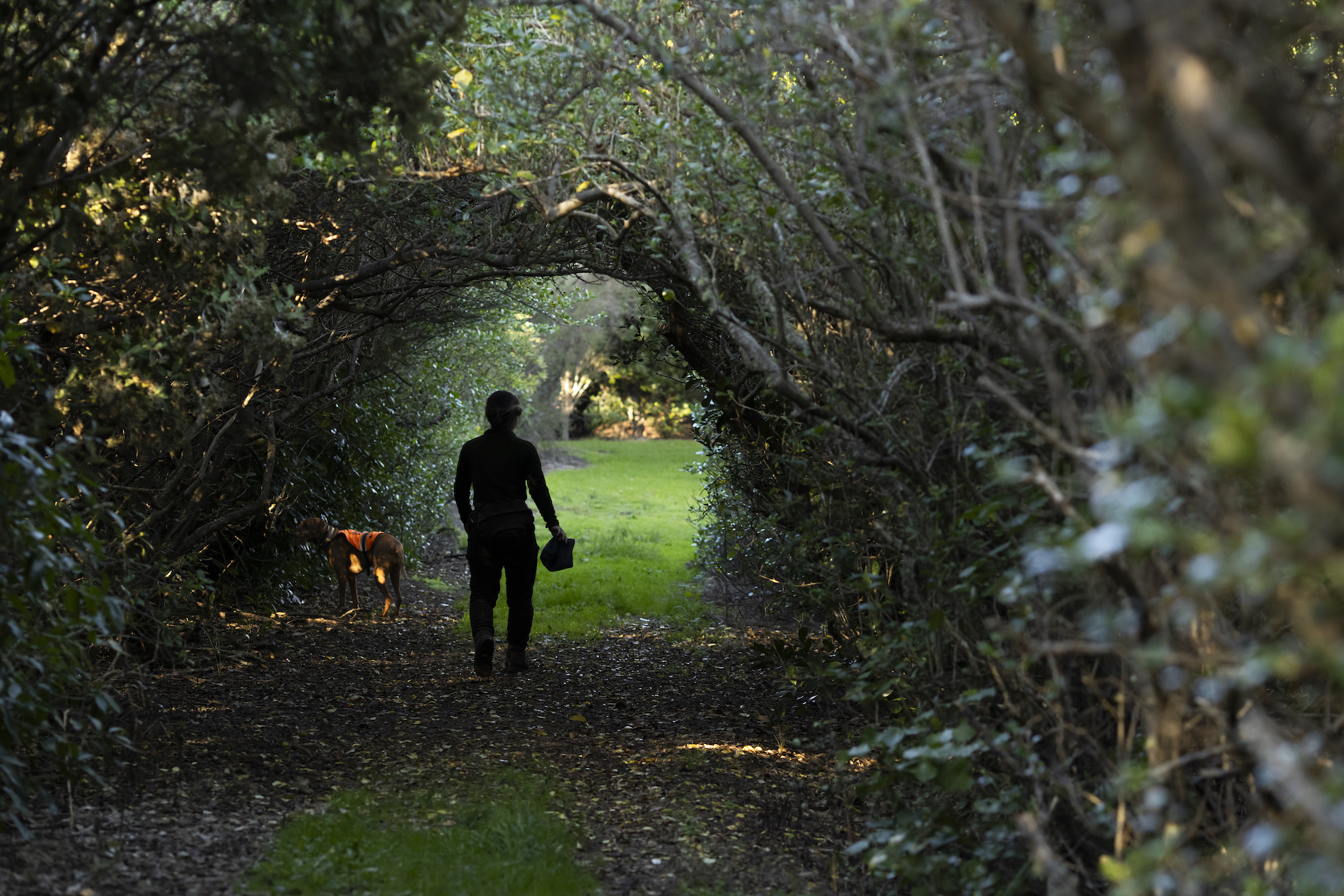
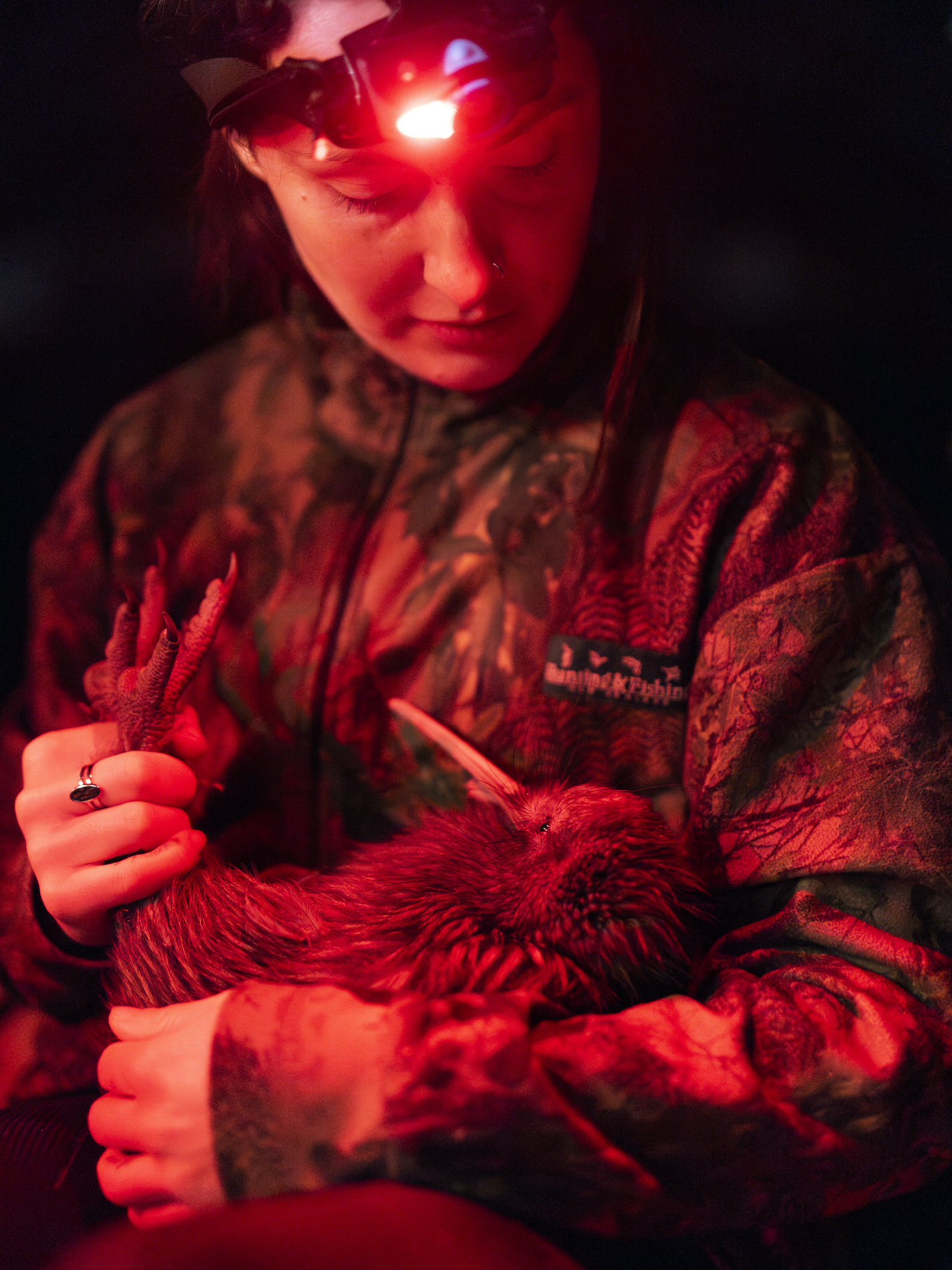
Working tirelessly day and night, the team succeeded in locating 26 kiwi, 23 of whom were ready to start their new lives—16 on Motutapu Island and 7 on the Coromandel Peninsula.
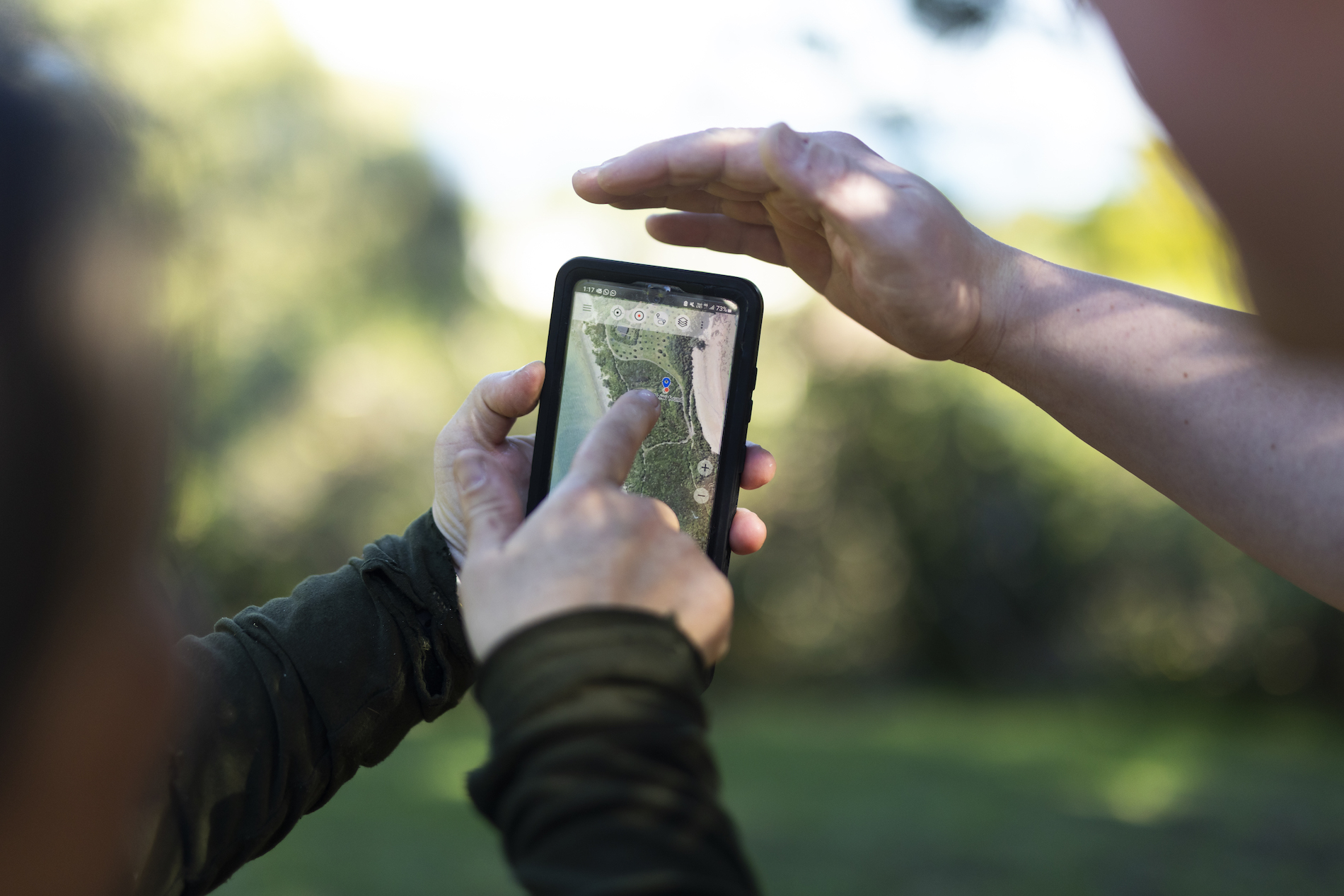
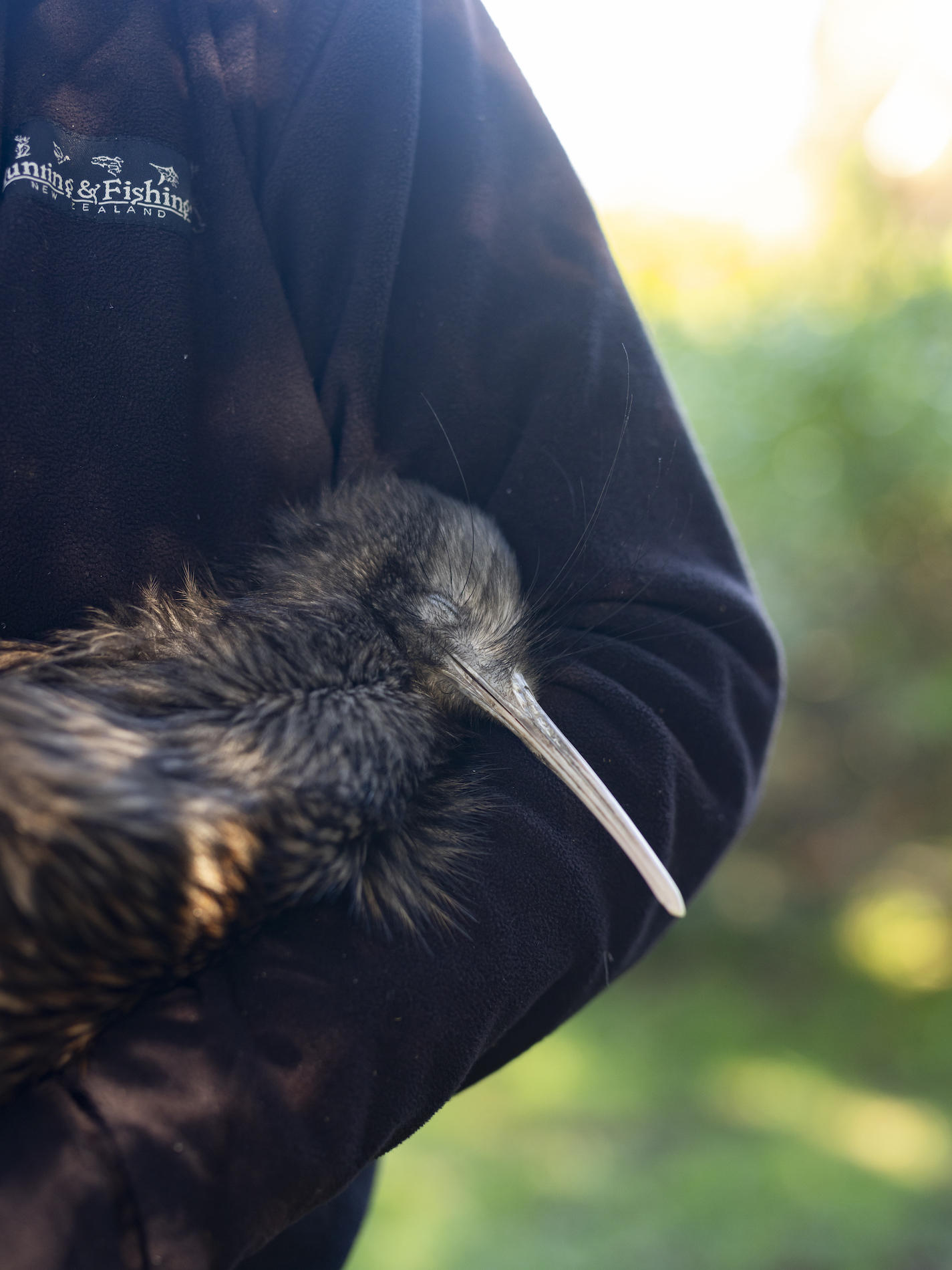
Among these were familiar faces like Neal, named in honor of Neal Plowman, one of our island benefactors. Released on Rotoroa as a chick in December 2022 and now weighing a healthy 1.6 kg, Neal the young kiwi was transferred across to Motutapu as one of the founders of the Coromandel brown kiwi kōhanga (birthplace).
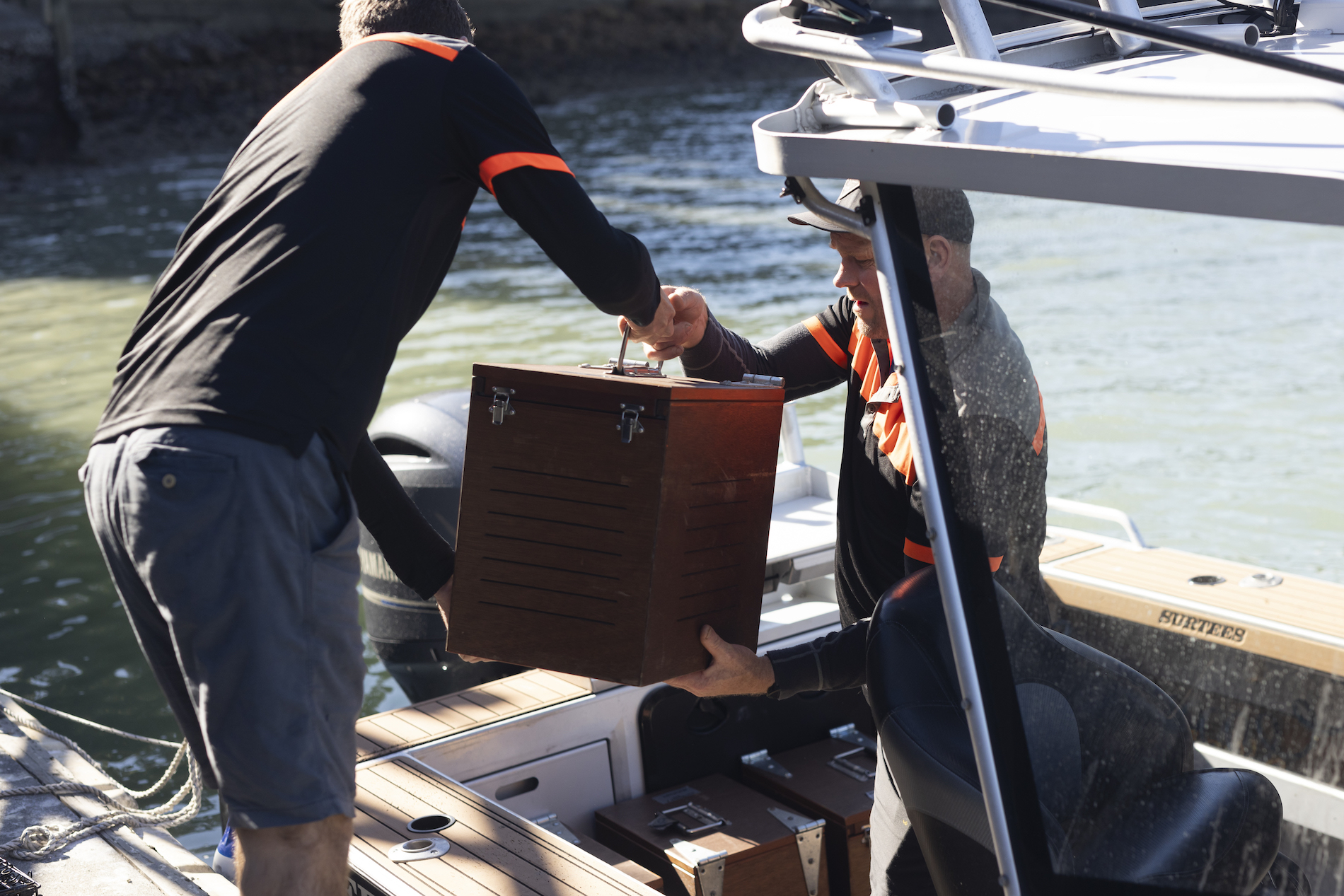
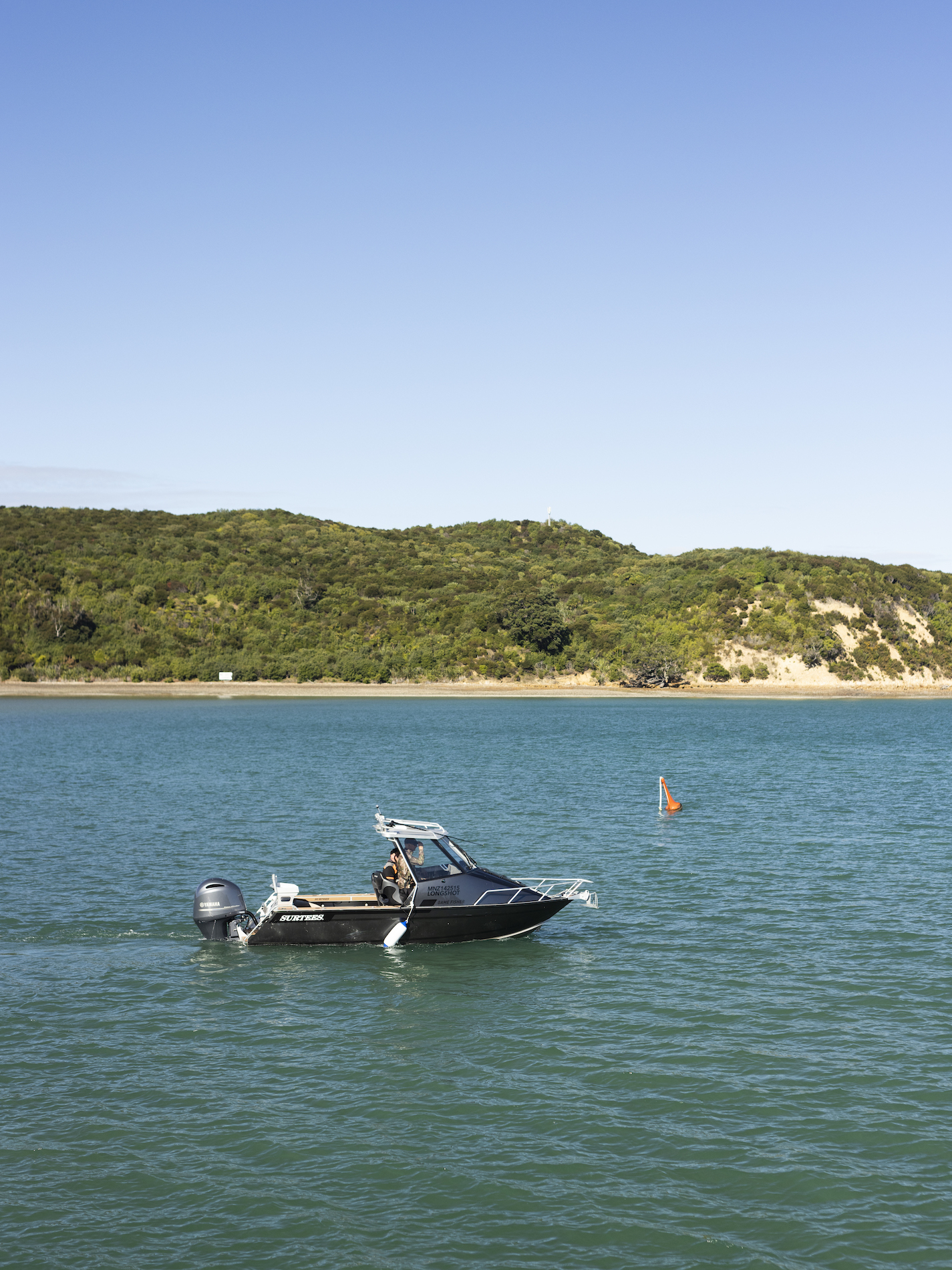
Another notable kiwi, Helmet, had been released only a few months prior by Jenny May Coffin from TV One’s Breakfast team and had already surpassed the critical 1.2 kg mark—a testament to the island’s nurturing habitat to support these young kiwis’ growth. Some kiwi were too young to be relocated and remained on the island afterhealth checks.
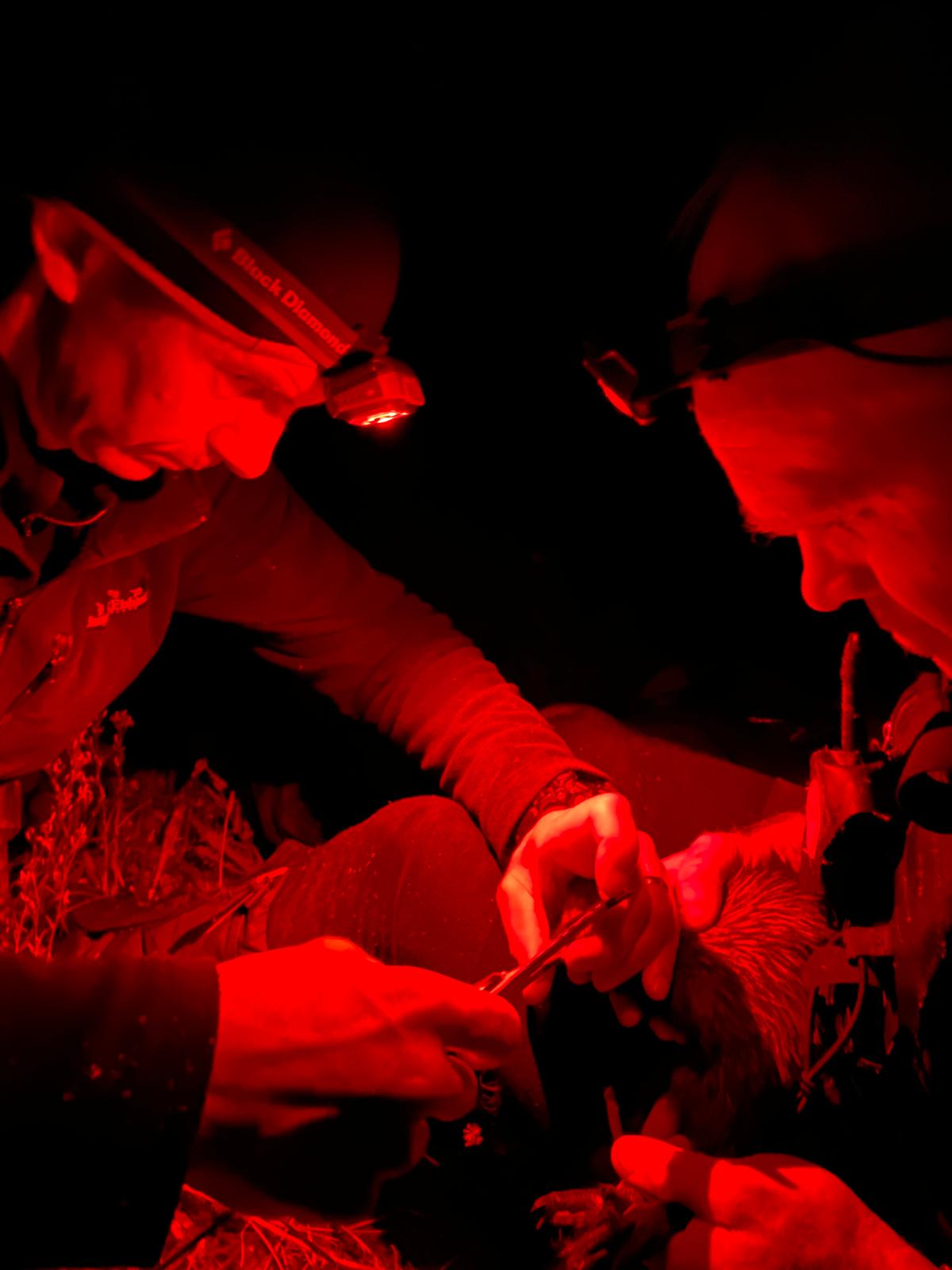 Helmet having his bill measured by Aaron. Photo Credit: Michaela Scarott
Helmet having his bill measured by Aaron. Photo Credit: Michaela Scarott
Our Assistant Manager Milly joined the team for a night where they successfully caught 4 kiwi, one outside the front of the manager’s house. She shared, “Catching kiwi isn't as easy as you think. Their incredible sense of smell, particularly for human scent, and their ability to outrun humans uphill through dense vegetation, demands quick reflexes and sharp wits."
Rotoroa island is an important space for these baby kiwi to thrive, and gain the essential survival skills they need to be translocated back to their home range in the Coromandel or to Motutapu Island.
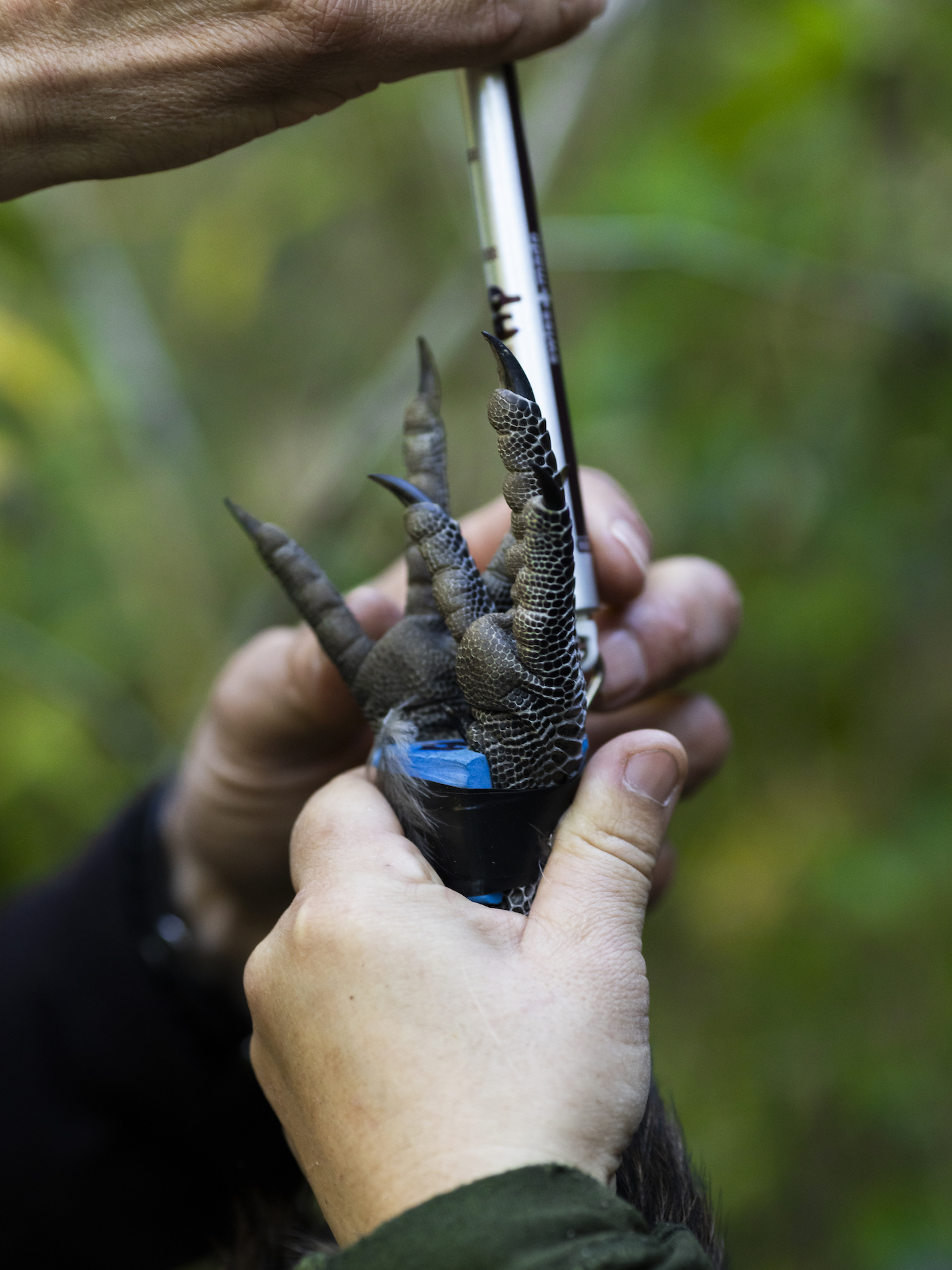
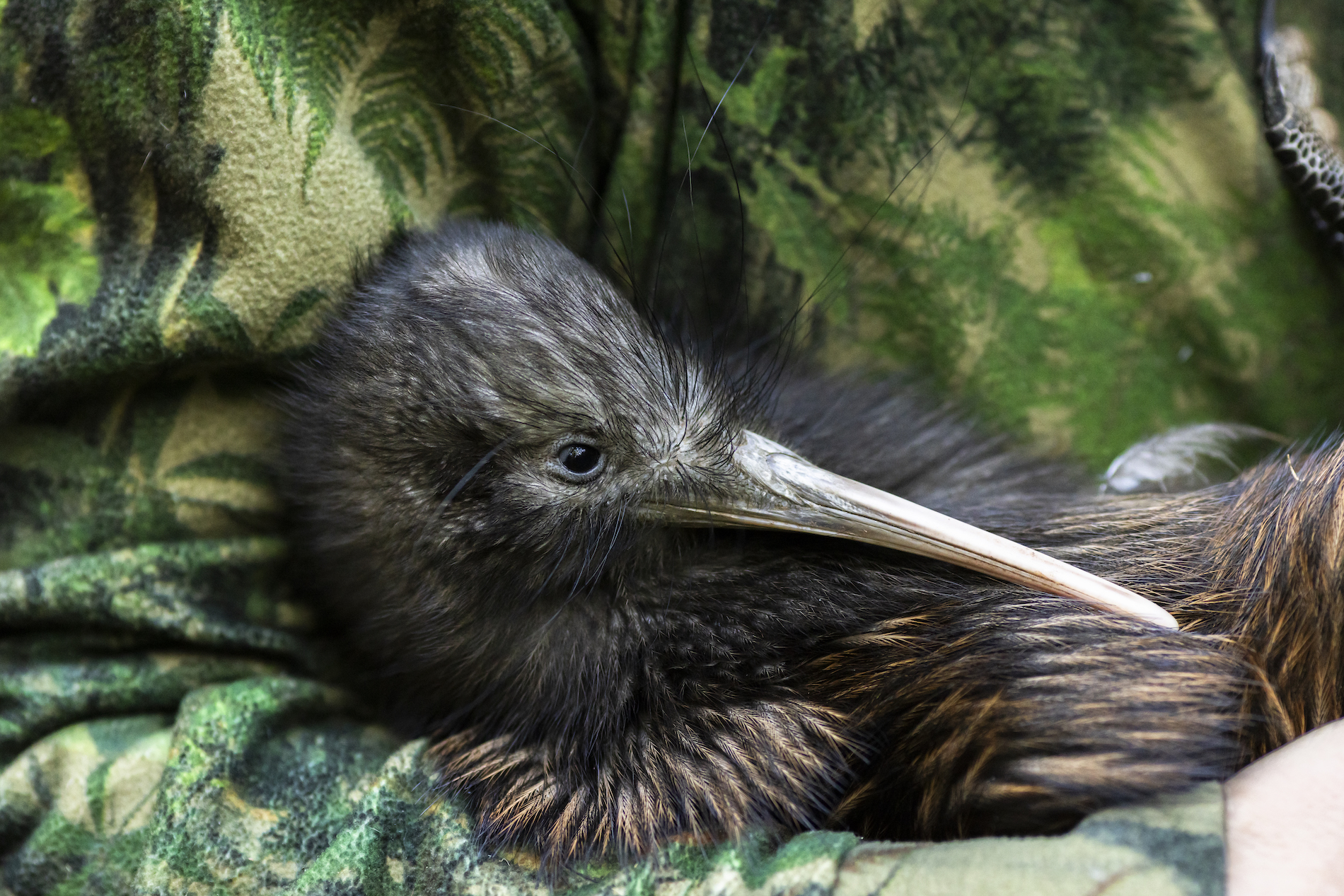
Our island sanctuary remains ‘home’ to around 30 kiwi who’ll roam the island until the next year’s muster and it’s their time to depart. Join us in this ongoing effort—every visit helps secure a brighter future for the kiwi.
All photos taken by Alex McVinnie, except where noted otherwise.
